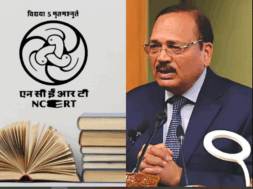
Manas Dasgupta
NEW DELHI, Dec 23: The central government run schools will not follow the “no detention policy” any more. The centre on Monday scrapped the “no detention policy” introduced in 2009 under which the students up to class eight were promoted to the higher class even if they could not clear the final examinations.
In a big change in school education, the Centre has scrapped the ‘no-detention policy’ for classes 5 and 8 in schools governed by it, allowing them to fail students who do not clear the year-end exams, according to officials.
According to an official notification issued on Monday, if students fail to clear the annual exams, they will be given additional coaching and an opportunity to take a re-exam within two months of the results.
“If the child appearing in the re-examination fails to fulfil the promotion criteria again, he shall be held back in fifth class or eighth class, as the case may be. During the holding back of the child, the class teacher shall guide the child as well as the parents of the child, if necessary, and provide specialised inputs after identifying the learning gaps at various stages of assessment,” the notification said.
The notification issued by the Union Education Ministry said the notification would apply to over 3,000 schools run by the central government, including Kendriya Vidyalayas, Navaodyala Vidyalayas and Sainik Schools. The notification also clarified that no student can be expelled from the school till their education was completed.
“Since school education is a state subject, states can make their decision in this regard. Already 16 states and 2 UTs including Delhi have done away with the no-detention policy for these two classes after an amendment to the Right to Education Act (RTE) in 2019. “Haryana and Puducherry have not made any decision yet, while remaining states and UTs have decided to continue with the policy,” a senior official said.
“No Detention Policy” up to class eight was introduced in 2009 under section 16 of the Right of Children to Free and Compulsory Education (RTE) Act, 2009. The rule states: “No child admitted in a school shall be held back in any class or expelled from school till the completion of elementary education.” But recently, a change has been made to this rule. In a meeting held last year, opinions about this policy from all states were solicited. After the Central Advisory Board of Education (CABE) meeting, 23 out of 28 states suggested changes to the existing policy. On the request of these 23 states, modifications have been made to it.
Many of the teachers have also voiced opposition to the policy which they said had made the students lethargic and ignorant because they know that whether they studied or not, they will still be promoted to the higher class.
“I remember there was a student in my class who was failing in Mathematics and English and was barely passing in Social Studies. But when I told him that he should study to score better, he simply told me that he need not worry as he knows that he will reach Class VII,” says a teacher in a Public School said.
But many of the students favoured continuing with the “no detention policy” which they felt “made a lot of sense” as the students would still be learning something if they attended the classes instead of leaving schools if failed in class five or eight.
With the original policy, the Ministry of Human Resources and Development (HRD) aimed at addressing concerns about an increase in the drop-out rate due to students being forced to repeat a class. However, with time, the quality of education deteriorated as students started taking their studies lightly. To work against this, modifications were suggested.
Though the idea has got a nod from 25 states, the bill is yet to be passed by Parliament. “This detention policy will be a good push for the students as it will give them a fair chance to rectify their mistakes. As a principal I believe primary education is the foundation of a child’s future — the stronger the base, the stronger will be the child’s learning capabilities. The objective is to make them learn from their mistakes so that they do not face any problem in the higher classes,” a school principal said.
Experts, too, share the views of the HRD ministry. “I personally feel that this new detention policy is a good decision taken by the HRD ministry, as it will eventually help the students. Giving students two chances to clear the exam would help them rectify their mistakes. If they fail in the first attempt they have another chance in hand,” an educationist said.













